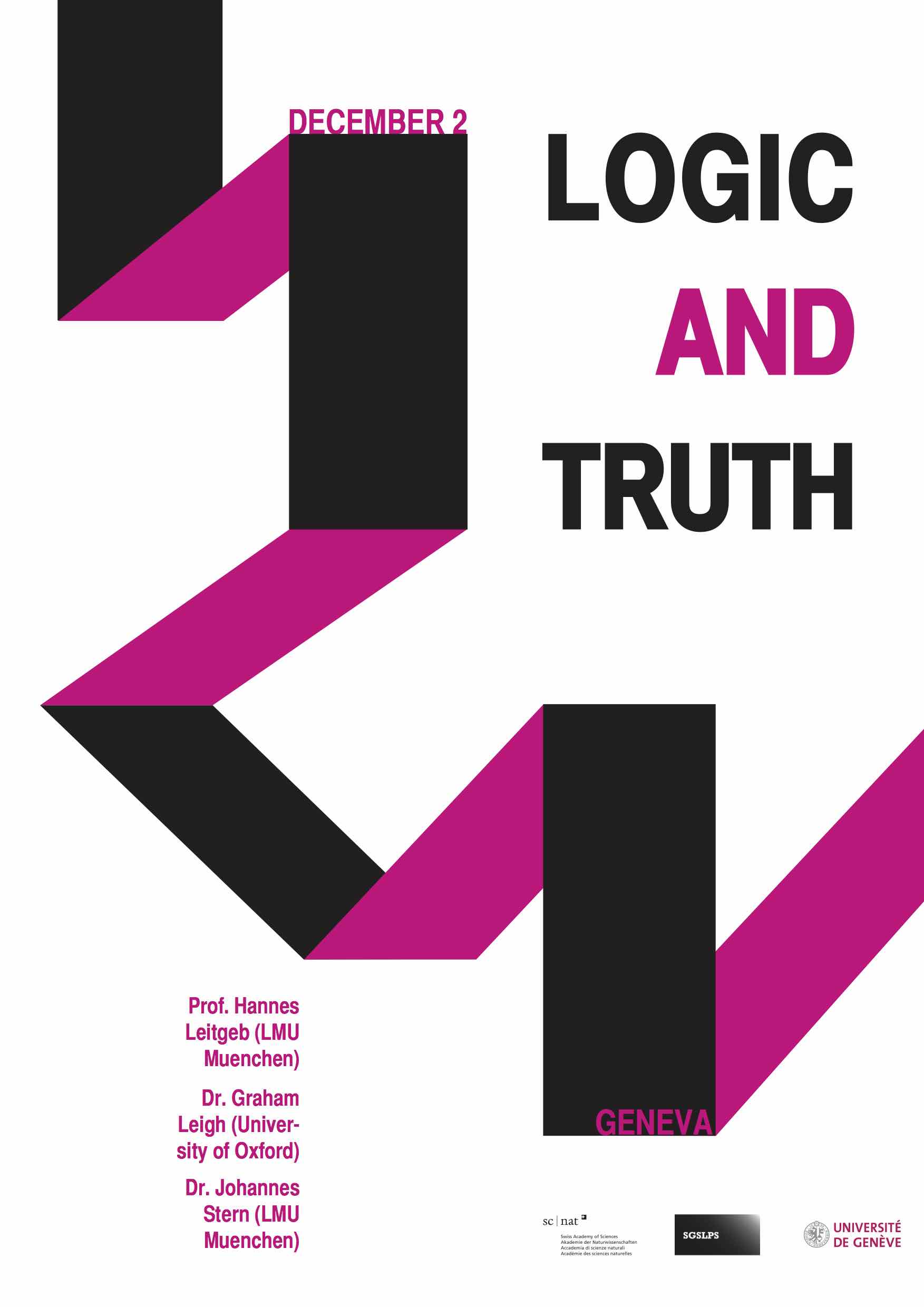
About Logic and Truth
Playing a central role for all philosophical and scientific inquiry, the notion of truth has always posed various puzzles to philosophers and logicians. Answering questions such as what makes some things true as opposed to false or what kind of things can count as true or false requires a genuine understanding of the metaphysics and the logical behaviour of truth.
Abstracts
Hannes Leitgeb
Truth, Necessity, Probability
I will give an introductory talk on the question whether truth, necessity, and probability ought to be expressed by sentential operators or rather by predicates of sentences or propositions. I will start with a brief historical survey on this issue, I will deal with the main challenge that the predicate approach is facing--the notorious semantic paradoxes, such as the Liar paradox--and I will end with some notes on recent work on type-free necessity and probability.
Graham Leigh
What's in a T-sentence?
The T-sentences are the bi-conditionals ‘A if, and only if, A is true’ for propositions A. In formal theories of truth, these are modelled by the logical formulæ ‘A <=> T[A]’ where now A ranges over sentences of some first order language, T is a predicate symbol in that language and [A] denotes a term (‘code’) representing A. In the disquotational theory of truth, it is argued that everything there is to say about truth is a consequence of the T-sentences over an appropriate choice of language. A common belief is that disquotational theories of truth are deductively trivial: a consistent and ‘natural’ choice of T-sentences is either inconsistent or model-theoretically conservative over the base theory. In this talk I will present recent formal results that suggest this assumption cannot be much further from the truth.
Johannes Stern
Truth and Modal Logics
Axiomatic theories of truth can be viewed as ascribing certain modal properties to the truth predicate. These modal properties can then in turn be studied in the framework of modal operator logic. As a consequence the question arises how a theory of truth relates to its intuitively corresponding modal operator logic. In my talk I will address this question and argue that this question might lead to new insights with respect to axiomatic theories of truth.
Report
In a one-day workshop on Logic and Truth, the SGSLPS suggested to look at some questions related to the notion of truth that arise in the context of formal logic. On the one hand, semantic theories of formal languages operate with a rigorous definition of true sentences when spelling out truth conditions for statements in formal theories; on the other hand, the logical behaviour of truth ascriptions themselves is an interesting subject of study. Truth predicates behave in a peculiar way and can lead to paradoxes when treated in a classical formal manner; moreover, it has not been settled so far whether truth ascriptions take the subject predicate form or involve a sentential truth operator which would resemble the necessity operator well known from modal logic. These and similar questions were addressed during this SGSLPS workshop. Johannes Stern, the recipient of the 2012 Paul Bernays Award, concluded the conference.